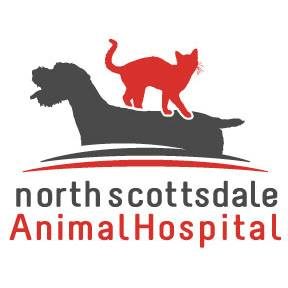Dogs and cats have anal glands near the rectum. These glands produce secretions that have a strong odor often described as “fishy” or “foul”. The glands are usually expressed as your pet passes stool, however obstruction or inflammation of the gland can lead to discomfort. The “scooting” observed by many dog owners is an attempt to relieve the discomfort. The expression of material from the glands is commonly associated with fear or anxiety, but isn’t necessarily associated with a disease. Regular expression of the glands can also occur while your pet is groomed or at your veterinarian’s office. Pets that are overweight, on restricted diets, or with a prior history of infection/obstruction may benefit from having a veterinary professional express the glands on a regular basis to avoid problems in the future. In the most severe cases the glands can be removed surgically since the glands do not perform a necessary function for the health and well-being or your dog or cat.
Month: May 2014
What to look for in a rattlesnake bite
It is spring in Arizona and that means one thing: rattlesnake season. Rattlesnakes love the warmer weather so are more likely to be out in our yards and on our sidewalks.
If your dog is bit by a rattlesnake there are usually two puncture wounds from the fangs at the area of the bite. The bite will likely be very painful and become swollen quickly. The venom from the snakebite can cause extensive swelling, infection, respiratory distress, and other deleterious effects on the body. In rare cases a rattlesnake bite will be fatal. Prognosis depends on multiple factors-size of the snake, the number of bites, amount of venom injected, location and depth of the bite, and the age, size and health of the dog.
If your dog is bit by a rattlesnake it is important that they are seen by a veterinarian as soon as possible. Time is of the essence when treating a rattlesnake bite- the sooner, the better.
Thinking about the possibility of a rattlesnake bite before it actually happens could be beneficial to your pet. A rattlesnake vaccine is available and will help your dog build antibodies against the snake venom. The vaccine does not negate the need for treatment after a bite, but can reduce the severity of clinical signs and increase survival odds. Rattlesnake training is also available in various places throughout the valley. This type of training teaches dogs to steer clear of rattlesnakes.
As the weather gets warm, keep your pets safe by watching closely for rattlesnakes!
Why does my dog make this weird “snorting” sound when breathing?
The weird snorting sound, or reverse sneeze, is the result of spasms of the soft palate and throat. Causes can be from any irritation to the throat from excitement, allergies, exercise, eating and drinking, pollen, mites, etc. Brachycephalic breeds are more prone due to the long soft palate which gets sucked back into the throat when breathing. Smaller breed dogs are also more prone to it possibly due to the size of the throat. Cats are usually not affected by reverse sneezing.
Treatment is not usually necessary unless it is due to a mite or due to allergies. In most cases the reverse sneeze will resolve on its own. Dogs can start at a young age and continue their whole life with it. As always if you are concerned with it, please call your veterinarian and schedule an appointment.
Why I vaccinate my OWN dogs?
Vaccines get a bad rap from the ill-informed, new age pseudo-veterinary folk on the web. The case for vaccinating your dog against a variety of contagious and potentially life-threatening diseases has never been stronger, and the discretion that veterinarians use when deciding to vaccinate a dog has never been more judicious. As a veterinarian I thought it was important to share my personal reasons for vaccinating my own dogs:
1. Low Risk, Doesn’t mean No risk: The diseases we vaccinate against can produce serious illness. I don’t feel comfortable as a pet owner putting my dogs at risk especially since the side effects are infrequent and rarely severe.
2. My dogs are social animals, so are yours: My dogs frequently interact with other dogs. I don’t want my dogs to be a vector for spreading disease. Anyone who allows their dogs to interact with other dogs at a park, kennel, day care facility, etc. is helping to protect the population of dogs by vaccinating their pets, not just their own.
3. I vaccinate against real concerns, with proven vaccines: We have many available vaccines but I choose to vaccinate against diseases that my dogs may at risk for being exposed to. I never use a vaccine that has not proven itself effective at reducing the severity of disease (e.g. corona, giardia).
4. Scientific evidence trumps opinion every time: The efficacy of our current vaccines has been well substantiated, while the risks are extremely small. I always encourage people to get the facts from a reliable source, like their vet, before making a blanket judgement about their pet’s care from advice on the web.

